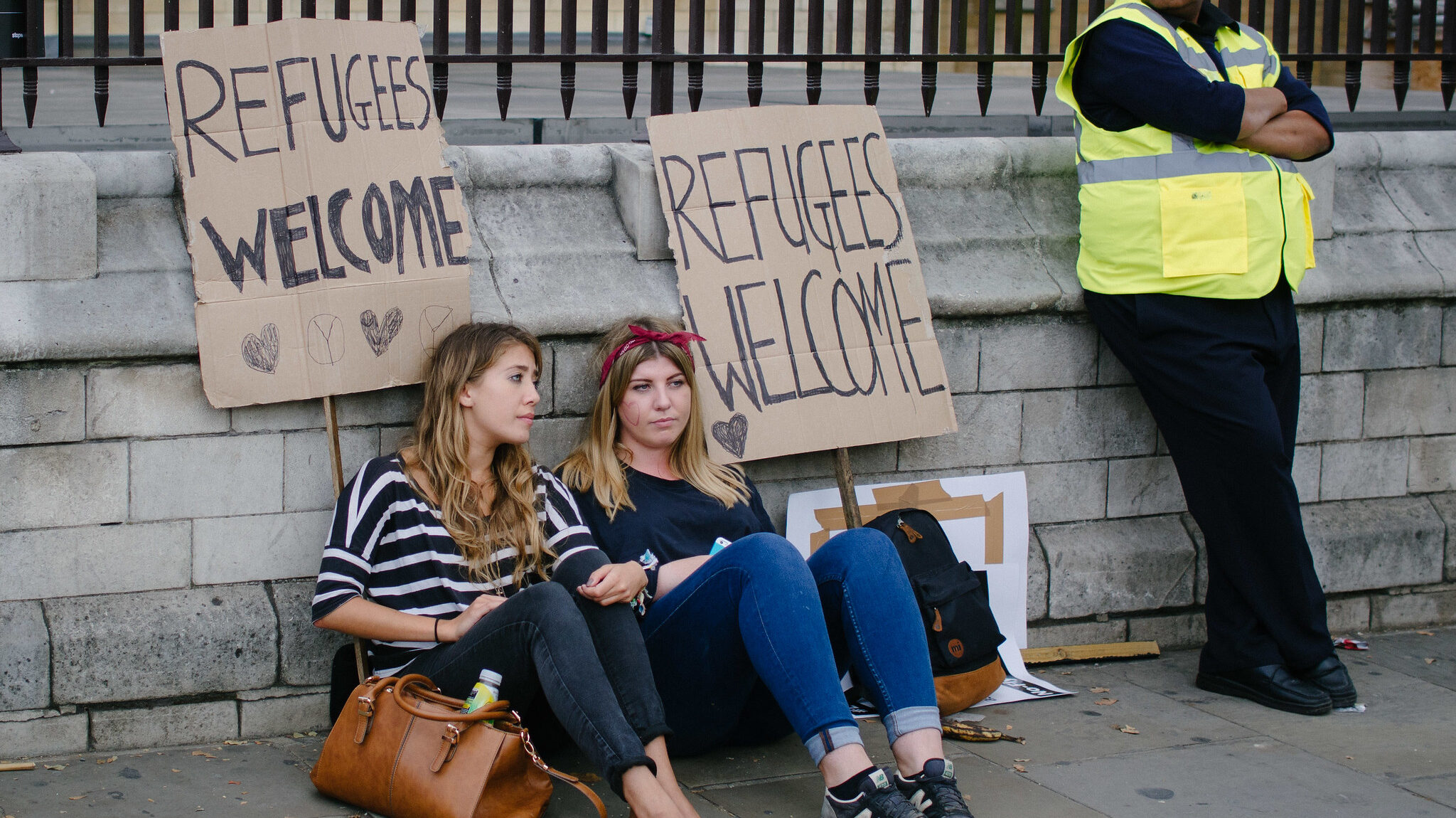Your support changes lives. Find out how you can help us help more people by signing up for a subscription
Ria was lucky enough, with the help of our team, to get the council to provide emergency short-term accommodation but her situation remains precarious as we work to secure a long-term solution. Others have not been so lucky and are being driven onto the streets. We’re seeing a sharp increase in clients at risk of or experiencing homelessness and sadly the figures confirm our fears.
Since the changes to the move-on process at the beginning of August 2023, British Red Cross Refugee Services have seen a 140% increase in destitution for people they support with refugee status. A recent investigation by The Big Issue found that 1,000 asylum seekers are likely to find themselves homeless this Christmas in Birmingham and Glasgow expects 1,400 asylum claims to be granted, placing a £50m strain on its services. In Nottingham, 50 asylum seekers have already come forward seeking homelessness support since the change has been made. In Merseyside and Leicester, refugee charities are being overwhelmed with some only able to offer sleeping bags to families being forced onto the streets. This is a national problem.
Many of our clients spend years in the system, suffering immense mental stress before they obtain the right to live here legally. Giving people hope by finally granting legal status or leave to remain, only to snatch it away by saying they have to find a home within seven days is cruelty – pure and simple.
And the government recently announced that they will ‘consult’ with local authorities to determine an annual cap on their ‘capacity’ to house refugees.
It’s hard to see this as anything other than a disingenuous ploy by this government to further shift the blame for the treatment of refugees onto local authorities. The reality is, local authorities’ ‘capacity’ to house refugees is based on the funding and support they get from central government. If central government is now combining its lack of funding with the pressure of giving local authorities a week to find housing for newly recognised refugees, then it is cynically setting them up to fail.
This is not the answer to reducing the asylum backlog. It is an ill-planned, reactive and short-termist measure which only serves to appease those who complain about the cost of keeping asylum seekers in hotel accommodation. Forcing people to live in cramped hotels is undoubtedly another of the government’s reactive and costly measures, wasting tax-payers money, where the only winner is companies making massive profits from people’s misery. But instead of creating new problems for people and local services across the country, the Home Office could solve the asylum backlog and right their wrongs by investing in social housing and housing people in the community.
Creating more homelessness is not the answer. Passing the buck to cash strapped local authorities isn’t either. The government needs a joined up, humane strategy that will help ease our homelessness crisis, not this short-sighted solution which puts those who are already vulnerable at risk of destitution. We must revoke the seven and 28 day policy and at the very least bring the notice period back to 56 days in line with the Homelessness Reduction Act. Housing people in our communities as they await the outcome of their applications and permanently once they have been granted asylum is the only compassionate and sensible solution.
This government has failed on its 2019 manifesto promise to “end the blight of rough sleeping” and last year saw the biggest yearly rise in homelessness since 2015 with 3,069 people spending the night on our streets. With the homelessness crisis already out of control and a cost-of-living crisis pushing people into deeper poverty, the government should be providing support to take people off our streets, not forcing more people onto them.
Ravishaan Rahel Muthiah is the communications director of the Joint Council for the Welfare of Immigrants.





